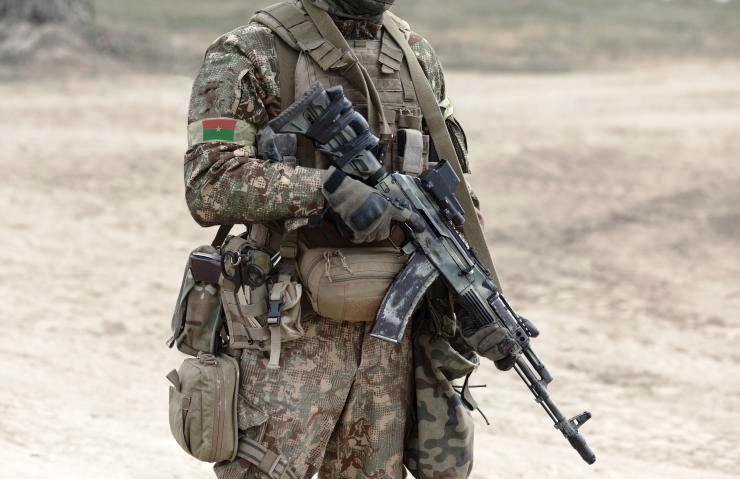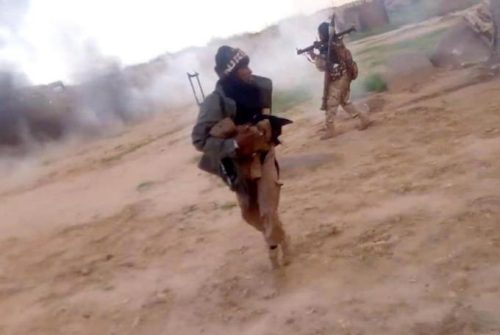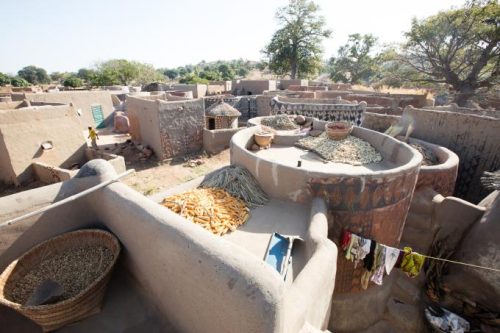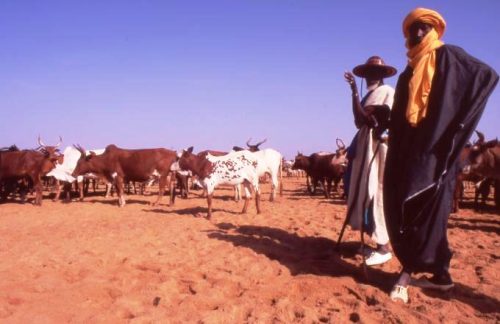Descent into chaos.

In Burkina Faso, the terrorist threat emerged after 2015, the year in which the first president after the lengthy period of the Compaoré regime was democratically elected.
In 2016 jihadists started to penetrate the country from Mali. Since then, the situation has steadily worsened. According to Armed Conflict Location and Event Data Project (ACLED, that collects and analyses information concerning conflicts worldwide) data, 7,600 civilians were killed in 2023, compared to 1,414 civilians in 2022, and 757 in 2021. As the data show, despite the military coming to power in 2022, the situation has not improved, quite the contrary. What made it worse were certain measures implemented by the men in uniform, such as the indiscriminate use of the VDPs.
A report by the International Crisis Group (ICG), clearly describes the spiralling out of control of the violence (Burkina Faso: Arming Civilians at the Cost of Social Cohesion? 15 December 2023).

Attack of jihadist militants on a military base in Burkina Faso. CC BY-SA 4.0/ aharan_kotogo
Acts of violence committed by security forces or jihadists lead to reprisals that help attract new recruits to the army or the VDPs but also to jihadist groups. Burkina Faso is going through a circle of violence and vengeance where any massacre (committed by jihadists or pro-government forces) leads to another massacre. These conflicts risk to put an end to cohabitation and bring to the falling apart of the country.
Burkinabé authorities failed to get back the control of their territory without endangering the population. In their effort, pro-government forces seem to drag communities into the war at the risk of making them more vulnerable, both from a security and an economic point of view. In reality, the government forces seem to overlook the risks that the populations run from the rebel attacks, which are firmly entrenched in some territories, and demand total cooperation from them. Those who do not openly and decisively stand against the government run the risk of being abused by the armed forces or the VDP. But those same people may suffer reprisals from jihadists since the government is able to control an area in a stable manner and therefore the return of extremists in force is always possible.
Mistrust
Given the difficulties encountered by the armed forces in the course of the repression of the insurgency, the authorities (particularly under Traoré) began to make extensive use of the VDPs, which also constitute one of the pillars of power in the society of the new junta. This has been partly useful in terms of military success and control of the territory. On the other, it is creating considerable problems in terms of social cohesion and co-existence between ethnic groups.

Rural village in Burkina Faso. Serious concerns between the Mossi and the Fulani.123rf
The most obvious and dangerous aspect of this dynamic concerns relations between the Mossi and the Fulani (also called Peul). The Mossi – an ethnic group making up 50 percent of the population of Burkina Faso – are the majority within the ranks of the VDPs at a national level. On the opposite side, the Fulani – Burkina’s second-largest group (they are around 10 percent of the population) – are generally not recruited. This phenomenon is particularly evident in areas where the Fulani are the majority of the local population or are deeply implanted. It causes the Fulani to accuse the Mossi of defending their interests to the detriment of those of the community and of committing abuses against them, on the strength of the fact that they have weapons and the cover of central intelligence. Similar dynamics have been observed, on a smaller scale, in territories where the Songhai (another ethnic group) make up the majority of the VDP in a territory where the Tuareg and Fulani make up the majority of the inhabitants.
The Fulani, a nomadic population traditionally devoted to pastoralism and of predominantly Islamic religion living between Senegal and the Central African Republic, are finding it increasingly difficult in many contexts to be accepted by the settled populations (mainly devoted to agriculture). In addition to the classic problems of relations between farmers and herders, such as herd transit and competition for access to water sources, religious radicalism and jihadist propaganda have been added in recent years.

The Fulani, a nomadic population traditionally devoted to pastoralism and of predominantly Islamic religion. File swm
Not only in Burkina Faso, in fact, several extremists have launched appeals to the Fulani communities to join the rebel groups (the only ones who would defend their interests). These appeals, which have had a certain success given the malaise of part of the Fulani, have naturally had the main effect of casting suspicion of treason on a community that was already seen as alienated by sectors of the population due to its traditional nomadism (which has been declining in recent decades). Because of the hostility towards them, particularly by the VDP, the Fulanis are reluctant to join the security forces and cooperate with them, even when they do not intend to cooperate with the jihadists. But their attitude of equidistance between the two fronts is not actually accepted by the armed forces, and this fuels suspicion of the Fulanis. At the moment, the Traoré junta does not appear to be particularly preventive towards the Fulanis, but it does not seem to have so far put sufficient measures in place to reduce the respective mistrust between the parties. (Open Photo: Soldier with assault rifle and flag of Burkina Faso on military uniform. Shutterstock/Bumble Dee)
A.C.



